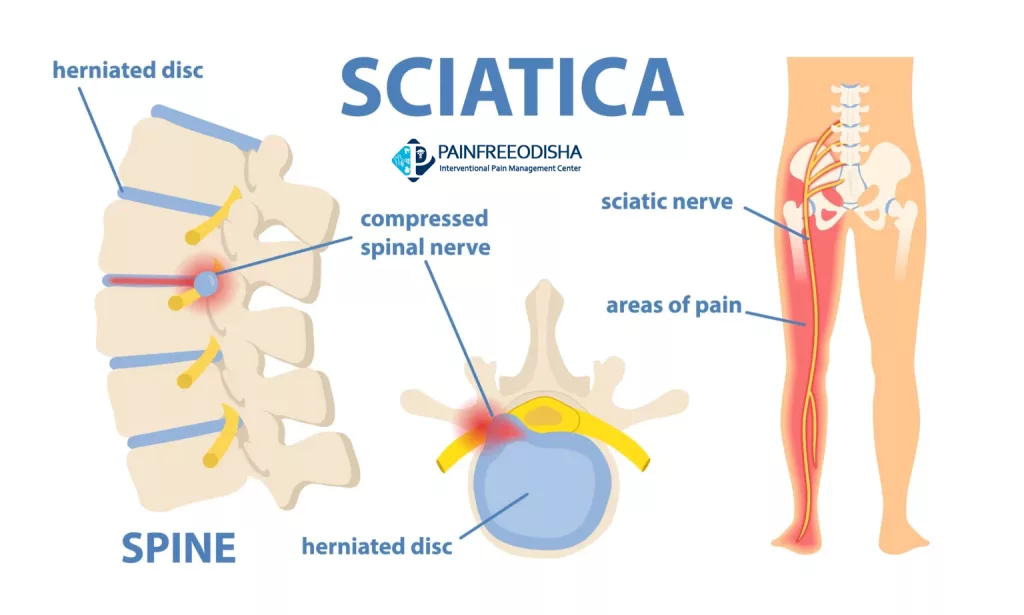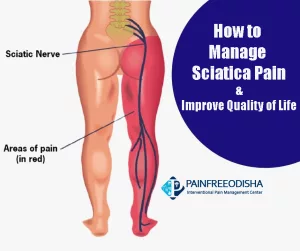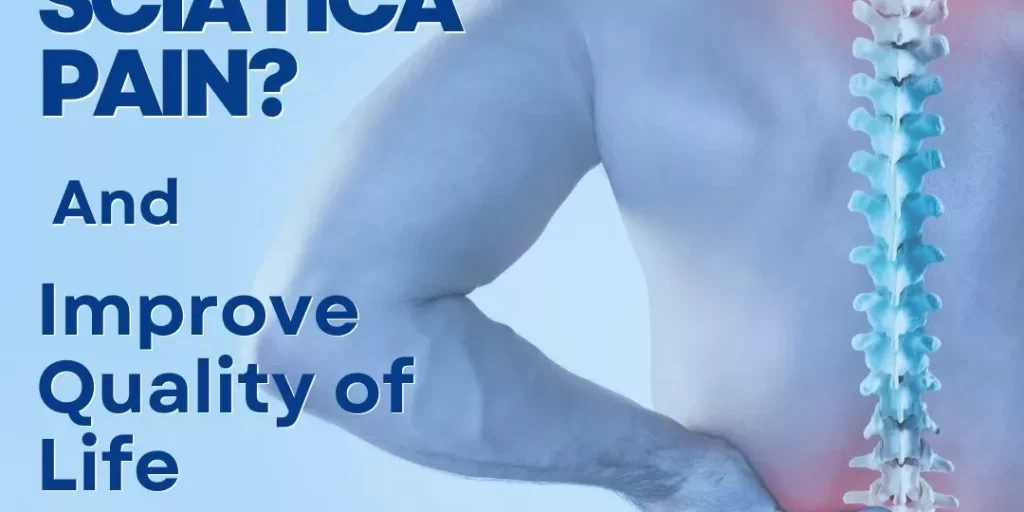
Are you experiencing discomfort in your lower back that extends down to your leg? It could be indicative of sciatica. Often misunderstood, sciatica is not merely a standalone ailment but rather a symptom of underlying spinal issues. Let’s delve into the sensations associated with sciatic pain, its root causes, and how to determine if you might be dealing with sciatica.
Sciatica pain refers to discomfort, pain, or numbness that originates in the lower back and travels down one or both legs. It occurs when the sciatic nerve, which is the longest nerve in the body, becomes irritated or compressed. The sciatic nerve extends from the lower back through the hips and buttocks, branching out down each leg. Sciatica is not a medical condition itself but rather a symptom of an underlying issue, such as a herniated disc, bone spur, or spinal stenosis.
 The pain associated with sciatica can vary widely, ranging from a mild ache to sharp, shooting pains. It often affects only one side of the body and can be exacerbated by factors like prolonged sitting, standing, or certain movements. Other common symptoms of sciatica include tingling, weakness, or numbness in the leg or foot.
The pain associated with sciatica can vary widely, ranging from a mild ache to sharp, shooting pains. It often affects only one side of the body and can be exacerbated by factors like prolonged sitting, standing, or certain movements. Other common symptoms of sciatica include tingling, weakness, or numbness in the leg or foot.
It’s important to note that while sciatica can be uncomfortable and painful, it is usually not a permanent condition, and many people find relief through conservative treatments such as rest, physical therapy, and medications. In more severe cases, medical interventions like epidural steroid injections or surgery may be considered. If you suspect you have sciatica or are experiencing persistent lower back and leg pain, it is advisable to consult with a healthcare professional for a proper diagnosis and tailored treatment plan.
What Triggers Sciatica?
Sciatica occurs when the sciatic nerve, which extends from the lower back to the legs, experiences compression or irritation. This discomfort often originates from spinal issues such as herniated discs or spinal stenosis. Recognizing these underlying causes is key to managing and alleviating sciatica effectively.
 What Does Sciatica Pain Feel Like?
What Does Sciatica Pain Feel Like?
Typically, sciatica manifests as a sharp, shooting pain starting in the lower back and coursing through the buttocks and down the leg. It can vary from a mild ache to an intense, debilitating sensation. Some describe it as an electric shock, while others feel a constant throbbing or burning.
What Are The Symptoms Of Sciatica?
Besides pain, sciatica can cause numbness, tingling, or muscle weakness along the nerve’s path. Sitting, coughing, or sneezing could intensify this discomfort. It’s essential to distinguish these symptoms from other types of back pain for appropriate treatment.
Diagnosing Sciatica:
Self-diagnosis can be tricky. Sciatica mimics other back issues, so professional evaluation is recommended. However, certain signs like leg pain intensifying when lifting your leg or pain predominantly in the leg rather than the back can hint at sciatica.
When To Seek Help?
Persistent or worsening symptoms warrant medical attention. If you experience significant discomfort or functional limitations, consulting a specialist at Pain Free Odisha can provide clarity and a tailored treatment plan.
Managing Sciatica Pain
While sciatica often resolves with time, managing pain is vital for comfort and mobility. Over-the-counter pain relievers, physical therapy, and hot/cold compresses can alleviate symptoms. In more severe cases, medical intervention might be necessary.
Sciatica Healing Time And Measures To Take:
The duration of sciatica recovery can vary significantly. It often depends on the root cause and the effectiveness of the treatment approach. While some individuals may experience relief within weeks, others might take months to fully recover. Effective management of sciatica typically involves a blend of medical guidance, appropriate physical therapy, and sometimes lifestyle modifications.
Ready To Tackle Your Sciatica Pain?
Battling with sciatica pain in Odisha? It’s time to take action. Dr. Shovan Kumar Rath of Pain Free Odisha expertise in addressing sciatica effectively. Consider reaching out to us for specialized care. Remember, managing your pain is the first step toward a more comfortable life.

